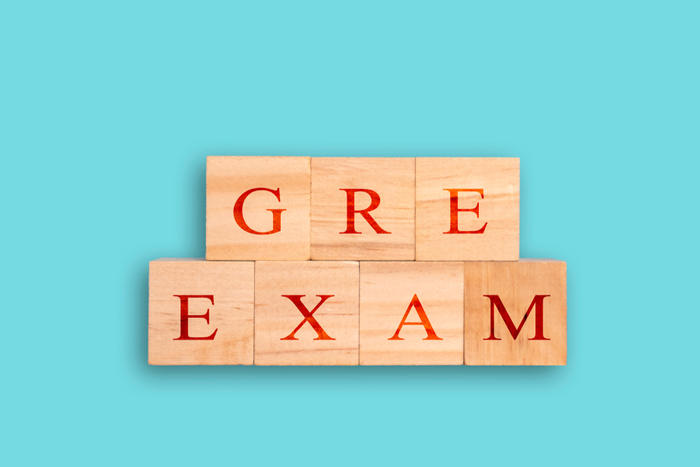Getting into law school is challenging. There are many adjustments you need to make and a handful of essential exams you need to choose from. In the past, the LSAT was the only test that law schools looked at, but some major law schools now accept the GRE. For example, Harvard and NYU now accept the GRE and LSAT. While this is a relief for some, it creates the conversion problem. If there are two exams, how do you compare the scores?
While more options are great, the GRE and LSAT are different exams with individual scores. They're scored differently and have unique sections. For this reason, it's essential to know how scores from both exams stack up. So, we're going to take you through everything you need to know about GRE to LSAT conversions.
Comparing the LSAT and GRE
The LSAT and GRE are different, but both tests share many similarities. The LSAT has more verbal reasoning sections, whereas the GRE combines verbal and quantitative sections. Still, the LSAT is the more difficult exam because its sole focus is determining whether or not a student is prepared for law school. This is why we're going to take you through a brief description of each exam.
The LSAT
The Law School Admission Test (LSAT) is a five-section exam. For each section, students are allotted 35 minutes. The entire includes no quantitative sections. While this makes the exam desirable for law fields, it doesn't hold up well for other career paths. If you want to enter into a program other than law, this is not the test you want to take.
The LSAT is the more difficult exam of the two, even without the quantitative section. Students are unable to flag questions and revisit them later, making every section crucial. Once a section is over, students must move on to the next one.
The LSAT is also time-consuming to prepare for, and students don't have a lot of freedom with it. This is because the exam is only administered twice per year. If you score poorly the first time, you'll have to wait at least six months to retake it. For this reason, the LSAT becomes a considerable time investment for students. This is why it's designed for people looking to enter law programs; otherwise, it's a waste of time.
Still, the LSAT is what law schools consider the best indicator. This means that law schools favor LSAT scores when considering students, which is why it's GRE to LSAT conversions and not LSAT to GRE conversions.
The GRE
The Graduate Records Examinations (GRE) is a computerized test. It consists of six sections, one of which is experimental and unscored. The other sections consist of writing, logical reasoning, and quantitative reasoning. While the analytical writing section always comes first, the other sections are administered in a random order. Students are also able to flag questions and return to them later if necessary.
The GRE is loaded with questions. The logical reasoning section tests a student's ability to analyze arguments, and the quantitative section focuses on high school level mathematical questions. Still, what makes the GRE unique is the writing section. The writing section consists of two questions, with prompts focusing on an issue task and argument task. Students are given 30 minutes for each essay.
The GRE is well-rounded because it includes many sections. This makes the test appealing to most graduate programs because it gives a complete picture of students' academic abilities. While law schools used to focus solely on the LSAT, the GRE is proven to work just as well. Plus, the GRE can be taken more than twice each year, giving students more opportunities to boost their scores.
Converting GRE to LSAT Scores
While the LSAT and GRE are similar, the conversion is far from simple. Some sections on the GRE are weighed more than others, which makes the conversion unbalanced. This is good and bad. It allows students to focus more on specific sections, but if you don't do well on those sections, your score won't convert well. Let's break it down.
How GRE Sections Convert
First and foremost, we need to go over how the GRE score converts to the LSAT score. The LSAT is scored between 120 and 180, with one score for the entire test. This is different than the GRE, which has separate scores between 130 and 170 for the verbal and quantitative sections.
The LSAT is entirely verbal, so when the GRE converts to the LSAT, the verbal section is weighed more than the quantitative section. The verbal section consists of 60% of the overall score, and the quantitative section accounts for 40% of the overall score.
Unfortunately, this leads to inconsistencies. According to ETS, the room for error is plus or minus 5 points. Still, this window of error is small enough to determine whether or not you'll be eligible for a law program. ETS also has a free tool that allows you to convert your GRE scores to an LSAT score.
Are Percentiles used to Convert the GRE To LSAT?
If you've taken the LSAT in the past, you know how vital percentiles are. The LSAT uses a bell curve to score students, which is predetermined before the exam being administered. This creates a standard deviation, which separates the scores of students and places them into groups. For example, the 99th percentile is typically a score above 175 on the LSAT.
While a converted GRE score can be placed into an LSAT percentile, the +/- 5 point margin of error makes it tricky to put students into LSAT percentiles. This is because the percentiles of the LSAT aren't always determined by the same amount of points. This means that the 50th percentile can be separated from the 60th percentile, while only 3 points might separate the 90th and 99th percentile.
Furthermore, both exams are evolving each year, and the students that take the exams come from different populations. While the LSAT consists of law students, the GRE consists of students from a more general population pool. When it comes to percentiles, this makes it difficult to get accurate results.
What About the Writing Sections?
The LSAT and GRE both have writing sections. The LSAT has one writing sample students have to answer, and the GRE includes two essays. In this aspect, both exams are similar because the essays are based on arguments and issues.
While many graduate programs consider the GRE's writing section, law programs don't. This is because the writing sample of the LSAT isn't graded along with the rest of the test. The essay is sent out to schools for review. Students typically write admission essays to begin with, so the value of GRE and LSAT essays for law programs is negligible.
The Importance of the GRE and LSAT for Law School Applications
Pursuing a career in law is a noble one. There are plenty of opportunities for aspiring lawyers, and the profession awards those who work hard with a comfortable life. The first step is getting into law school, and to do so you'll need to take the LSAT or GRE.
Still, the LSAT and GRE don't guarantee you a position in your favorite law program. The way schools evaluate students for law programs is holistic. This means that programs take a look at everything a student has accomplished in the past. Both of these tests are simply a means to compare candidates to one another.
While the LSAT and GRE don't guarantee you a spot, the exams can improve your odds and earn you scholarship money. Students that score between 165-180 on the LSAT are typically considered for grants or scholarships. Even a score that's slightly above average can get you ahead of another candidate. So, while the GRE and LSAT don't guarantee anything, they can improve your odds.
Final Thoughts
Law schools looking at both the LSAT and GRE makes things complicated, but it's a good thing. The LSAT is a well-rounded exam, but it's limited. To prepare for it, most students already commit themselves to a career in law. When schools like Harvard consider the GRE, it gives more students a chance to pursue a career in law. Not only does this add more diversity into law fields, but it allows students to choose a different route if law doesn't work out.
Still, this means schools have more to look at, and conversions get complicated. The good news is that the ETS has software that law schools and students can use to convert their GRE score into a similar LSAT score. While the software works, it's not perfect. Still, with a room for error of plus or minus five points, you can get a great idea of where you stand when applying to law school.









